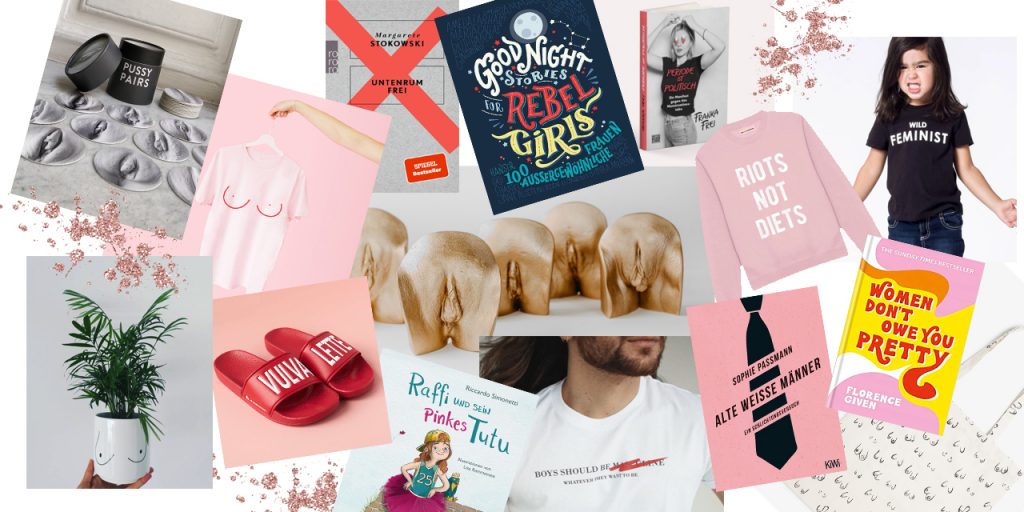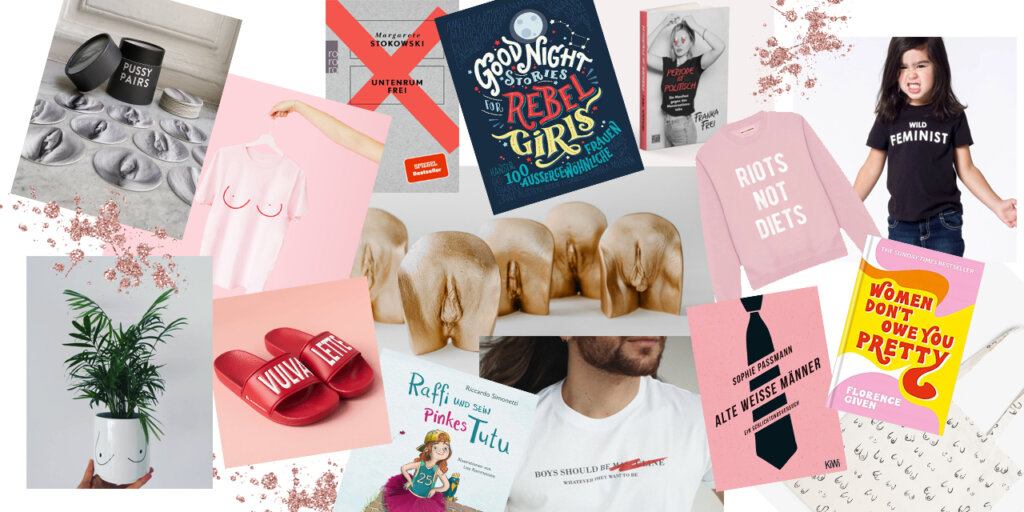So here we go again: for one week a year, women* get so much attention that some male* contemporaries get quite anxious. While we find ourselves somewhere between honest recognition of female* achievements and prestigious ‘fem-washing’ by various companies and brands, men* (and – unbelievably, but true – even a few women*) are speaking out in various internet forums, on social media, and the (virtual) regulars’ tables of this world, who find it an outrage that there is an International Women’s Day, but no equivalent for the ‘stronger sex’.
Although most people should have understood by now that in patriarchal social structures every day is ‘men’s day’ due to a lack of actually lived equality, I would like to state at this point: as long as there is a gender pay gap of more than 20% on average – this is the term used to describe the difference in salary between the sexes for the same amount of work – and the Equal Pay Day has to take place accordingly, the International Women’s Day should also be given a special weighting. Accordingly, women* work around 52 calendar days a year for free compared to their male colleagues. Or to put it another way: every 7th year!
This does not even take into account the fact that non-employed housework, the majority of child-rearing, and the unpaid care of sick relatives are still firmly in female hands. In 2021, societies appear to be more enlightened than ever before, but their basic pillars are still based on role models that were thought to belong outdated. This problem is a structural one – many changes have not yet arrived in people’s minds, and certainly not in the governments of this world. Largely made up of white men. Whether this is about fair wages and the associated decision of who goes on maternity leave or human rights that are trampled on in other countries of this world, which especially disadvantages women*. From female genital mutilation to forced prostitution to ordinary activities like driving a car or legal petitions like filing for divorce – victims of violence are disproportionately female* and far too many basic freedoms are denied to women* around the globe.
Yes, feminism is needed. No, that doesn’t mean hating men*. Rather, enlightened men know that all genders benefit from feminism (and queer theories) and that courageous thought leaders can create a better society. Toxic Masculinity – the momentous stereotyping of what a ‘real man’ is supposed to be like – is in the spotlight for the first time this year. This concept describes very precisely why it is fatal to continue to cling to archaic masculinity. Men* are allowed to reveal feelings, don’t have to be the tough breadwinners, and are skilled in craftsmanship and technology. Just as women* must not be relegated to a world of pink powder puffs, baby carriages, and ‘catfighting’.
Yes, this word is indeed used by the tabloid media as inflationary as if it were still 2001, especially in relation to ‘Reality TV’ á la Germany’s Next Topmodel and Der Bachelor. But I could write hundreds of lines on this topic separately, which is why I won’t go into it here. The same goes for keywords like Body Positivity & Body Neutrality vs. diet mania and omnipresent slimness glorification, gender marketing and the pink-light blue trap in the nursery or self-determination regarding family planning, choice of partner, pregnancy and its termination as well as the visibility of trans identities. Many strong terms, behind which there is a lot of suffering. Unique stories of people who are similar in the fact that in our world, unfortunately, much is still based on the domination of one gender over the others.
At the outset, I used the word ‘fem-washing’. This term refers to the capitalization of women’s rights and gender equality through corporate marketing efforts. Of course, you can make a lot of money with pretty designs and funny illustrations, and a broken system won’t be fixed by a poppy coat of paint. Still, I believe visibility subconsciously anchors itself in our minds, so this ambivalent topic could also be a means to an end. You can find a selection of tongue-in-cheek products and modern literature by smart young feminists in the following collage. And now: Happy International Women’s Day! Much good has already happened and much is still needed. Let’s all make a positive contribution.
Note: The asterisks behind the gender in today’s post are meant to especially point out the (non-)binary system of bisexuality. Not every woman* menstruates, and not every menstruating person defines herself as a woman. (As seen with the wonderful ladies of The Female Company!).

1.) Pussy Pairs Memory
2.) T-Shirt by The Female Company
3.) Book by Margarete Stokowski “Untenrum Frei
4.) Book “Good Night Stories For Rebel Girls”, Elena Favilli & Francesca Cavallo
5.) Book “The period is political” by Franka Frei
6.) Sweater from The Spark Company
7.) T-Shirt from Wildfang
8.) Book “Women Don’t Owe You Pretty”, Florence Given
9.) Jute bag from Monki
10.) Book “Old White Men” by Sophie Passmann
11.) T-Shirt “Boys should be whatever they want” by Riccardo Simonetti
12.) Book “Raffi and his pink tutu”, Riccardo Simonetti
13.) Vulvalette from The Female Company
14.) Flowerpot from Monki
15.) Your personal vulva statue made in Austria by Vulva Casting







